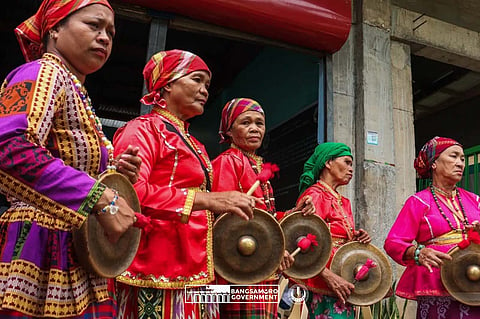
- NEWS
- the EDIT
- COMMENTARY
- BUSINESS
- LIFE
- SHOW
- ACTION
- GLOBAL GOALS
- SNAPS
- DYARYO TIRADA
- MORE

ZAMBOANGA CITY — The Indigenous Peoples (IPs) in the Bangsamoro Autonomous Region in Muslim Mindanao (BARMM) expressed optimism and pride over the approval of the Bangsamoro Indigenous Peoples’ Act of 2024, or IP Code, which aims to bolster IPs’ self-determination and self-governance.
BARMM Minister of Indigenous Peoples Affairs Melanio Ulama said on Sunday that the IP Code is being seen as a major step toward recognizing Indigenous peoples’ rights to ancestral lands, cultural preservation and autonomy.
Ulama, a staunch advocate of the measure, underscored the IP Code’s significance in safeguarding the indigenous communities’ rights and heritage.
He added that members of the Bangsamoro Transition Authority approved the BIPA Act or IP Code on 10 December.
Many IP leaders and advocates have long awaited this recognition. They see the passage of the IP Code as a concrete realization of Moral Governance and inclusivity within BARMM.
With the IP Code, key rights of the IPs are now prioritized, including the rights to ancestral domain, self-governance, cultural integrity, and social justice.
“This enactment is a victory not just for IPs but for the whole Bangsamoro region. It complements the principle of leaving no Bangsamoro behind,” Ulama said.
“The aspect of BIPA or IP Code will bring change that can strengthen our self-determination and self-governance, and the right to Fusaka Inged or ancestral land is now materialized,” he added.
Fusaka Inged is central to the identity and existence of IPs, serving as a foundation for their livelihood, culture and traditions.
Ulama believed that the recognition of ancestral lands by the IP Code would restore to the IPs what they had inherited from their forebears.
“The importance of recognizing the Fusaka Inged by the natives will return to the IPs the land inherited from their ancestors because the land is an extension of the life of the IPs. It is rooted in their livelihood, culture, tradition and belief,” Ulama said.
BTA’s Committee on Indigenous Peoples Affairs chair Ramon Piang described it as an enhanced version of the Indigenous Peoples’ Rights Act, tailored to the specific needs of Bangsamoro’s indigenous population.
The IP community now looks forward to the full implementation of the code, hopeful that it will pave the way for a more inclusive Bangsamoro where their voices and rights are safeguarded.
